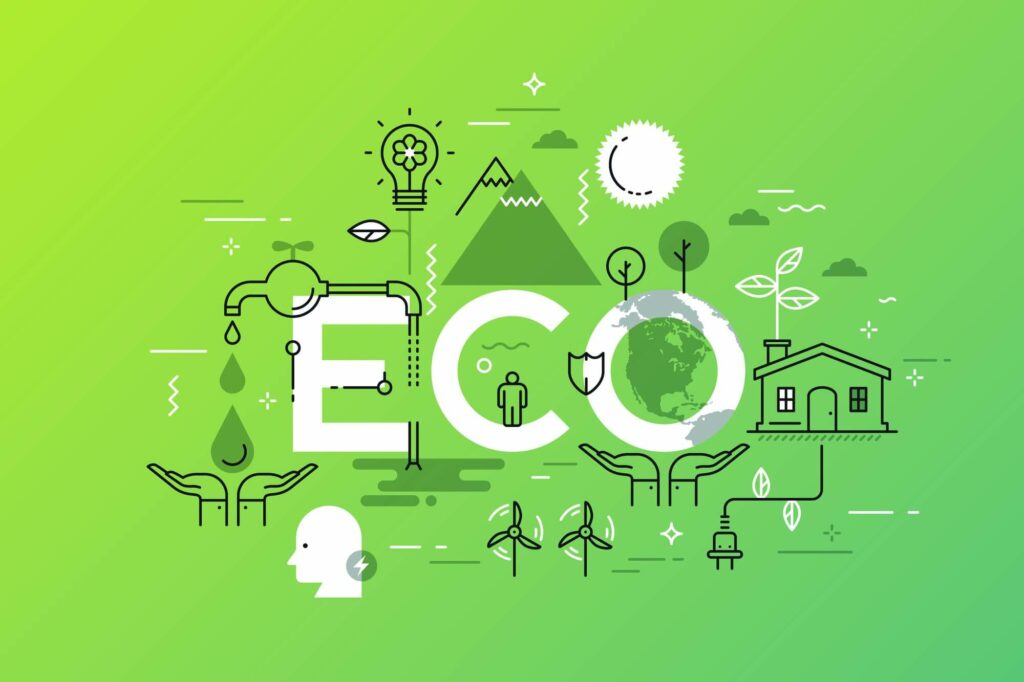Starting a Sustainable Startup: An Ultimate Guide
Starting a sustainable business is not only a rewarding endeavor but also an essential step towards creating a more environmentally conscious and socially responsible future. As the world faces pressing challenges related to climate change, resource depletion, and social inequality, startups have a unique opportunity to integrate sustainability principles into their core business strategies. Therefore, here are some of the most effective and important tips for launching a sustainable startup, focusing on areas such as product design, supply chain management, energy efficiency, and community engagement. By embracing these tips, aspiring entrepreneurs can establish a strong foundation for a business that prioritizes sustainability and makes a positive impact on both the planet and society.
Define Your Sustainability Mission and Values
Before launching your startup, it’s crucial to define a clear sustainability mission and values that align with your business objectives. Articulate the specific environmental and social issues you aim to address through your products or services. Consider your target audience and their sustainability preferences. By establishing a strong sustainability foundation, you can guide your business decisions and create a unique selling proposition that resonates with environmentally conscious consumers.
Integrate Sustainable Design Principles
Integrating sustainable design principles into your product or service is essential for a sustainable startup. Emphasize eco-friendly materials, energy-efficient manufacturing processes, and recyclability or biodegradability of your products. Strive for minimal waste generation and ensure that your design considers the entire life cycle of the product, from sourcing to disposal. By incorporating sustainability into your design approach, you can differentiate your startup in the market and attract customers who prioritize environmentally friendly solutions.
Implement Waste Reduction Strategies
Waste reduction is a key aspect of sustainable business practices. Implement strategies to minimize waste generation throughout your startup’s operations. Encourage the use of digital documentation and communication to reduce paper waste. Implement recycling programs and ensure proper waste segregation using a garbage chute system that could help you on several different levels. Explore opportunities for reusing or repurposing materials within your supply chain. By prioritizing waste reduction, you can decrease environmental harm, optimize resource utilization, and potentially generate cost savings.
Establish a Responsible Supply Chain
Developing a responsible supply chain is crucial for the sustainability of your startup. Conduct due diligence to ensure your suppliers adhere to ethical and sustainable practices. Prioritize local sourcing to reduce transportation emissions and support local economies. Consider certifications such as Fair Trade or organic certifications for relevant products. Build strong relationships with suppliers who share your commitment to sustainability and regularly review and assess their practices to maintain transparency and accountability.
Embrace Energy Efficiency
Promoting energy efficiency within your startup operations can help you save a lot of money while also minimizing your negative influence on the environment. Analyze your energy usage and note any improvements that could be made. Invest in energy-saving appliances, smart thermostats, and other equipment and technologies, such as LED lighting. Promote energy-saving behaviors among staff members, such as turning off lights and equipment they’re not using at the moment. To further lower your carbon footprint, think about using renewable energy sources like solar panels or taking part in green energy initiatives.
Foster Employee Engagement and Sustainability Culture
Engaging employees in sustainability initiatives is essential for the success of a sustainable startup. Educate and empower your workforce by providing training on sustainability practices and their importance. Foster a sustainability culture by involving employees in decision-making processes and encouraging their input on sustainable practices within the organization. Recognize and reward employee efforts in promoting sustainability. By fostering employee engagement and a sustainability-focused culture, you can create a collaborative environment that drives positive change.
Promote Ethical Labor Practices
Ensure that ethical labor practices are a fundamental part of your startup’s operations. Embrace fair labor standards, safe working conditions, and respect for human rights throughout your supply chain. Consider certifications like Fairtrade, which ensures fair wages and safe working conditions for workers. Conduct regular audits and engage in dialogue with suppliers to ensure compliance with ethical labor practices. By prioritizing ethical labor practices, you can contribute to the well-being of workers and build a positive reputation for your startup.
Engage with the Local Community
Creating meaningful connections with the local community is essential for a sustainable startup. Engage in community initiatives, support local organizations, and participate in events that promote sustainability and social responsibility. Collaborate with local suppliers and service providers to strengthen the local economy. Seek feedback and input from community members to shape your sustainability initiatives. By actively engaging with the local community, you can build strong relationships, foster trust, and create a positive social impact.
Embrace Technology for Sustainability
Leverage technology to enhance sustainability within your startup. Utilize digital platforms and cloud-based systems to reduce the need for physical infrastructure and minimize your environmental footprint. Explore data analytics and automation tools to optimize energy consumption and resource allocation. Embrace remote work options and virtual meetings to reduce commuting and associated emissions. By harnessing technology, you can streamline operations, improve efficiency, and contribute to a more sustainable future.
Measure and Communicate Your Impact
Regularly measure and communicate your sustainability impact to stakeholders, including customers, employees, investors, and the wider public. Establish key performance indicators (KPIs) to track progress toward your sustainability goals. Utilize sustainability reporting frameworks, such as the Global Reporting Initiative (GRI) or the Sustainability Accounting Standards Board (SASB), to ensure transparency and accountability. Share your sustainability achievements and challenges through your website, social media channels, and other communication platforms. By being transparent about your sustainability efforts, you can build trust and inspire others to adopt sustainable practices.
Bottom Line
Launching a sustainable startup provides an opportunity to drive positive change and contribute to a more sustainable future. By incorporating these ten top tips into your startup’s foundation, you can establish a business that integrates sustainability into its mission, values, product design, supply chain, energy efficiency, waste reduction, employee engagement, ethical labor practices, community engagement, and technology utilization. Embrace sustainability as a core business principle, continually seek improvement, and communicate your impact to stakeholders. By doing so, your startup can make a tangible difference in the world while also positioning itself for long-term success in an increasingly conscious and sustainable market.



3 thoughts on “Starting a Sustainable Startup: An Ultimate Guide”